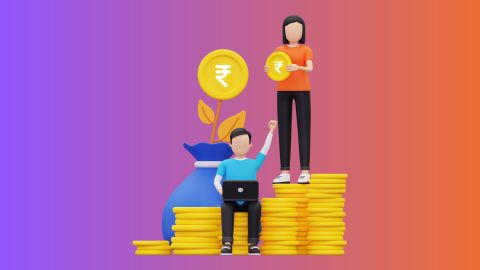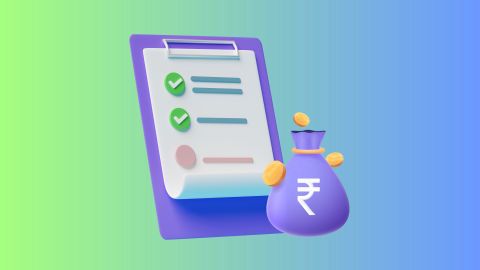Short-term and long-term loans are two common financial instruments that businesses and individuals use to access funds, and they differ significantly in terms of duration, purpose, interest rates, and repayment structures. When considering a personal loan, it is important to understand your needs and repayment capacity and choose the right option accordingly. Short-term loans, come with a repayment period of one year or less, cater to immediate financial needs. Whereas, long-term loans come with extended repayment periods, fund larger endeavours like real estate purchases, international trips, etc.
Short term financing vs long term financing
Read on to know more about the short-term and long-term loans:
Duration:
The most obvious distinction between short-term and long-term loans lies in their duration. Short-term loans typically have a repayment period of one year or less, with some as short as a few weeks or months.
Conversely, long-term loans have a more extended repayment period, often ranging from several years to several decades. These loans are typically used for more substantial investments, such as purchasing real estate, financing international trips, or funding the expansion of a business. The extended timeframe allows for lower monthly payments, making it more manageable for borrowers to repay the loan over time.
With the flexibility offered by Bajaj Finance Personal Loan in terms of repayment duration, loan amount, unique variants, and so on, it fits a variety of needs. Be it for short-term or long-term, our personal loan has you covered. Read about the personal loan features that make it an ideal option when you need immediate funds.
Purpose:
Short-term loans are usually sought to cover immediate financial needs. Borrowers may use them to manage cash flow fluctuations, address seasonal demands, or seize time-sensitive opportunities. Individuals might seek short-term loans to cover emergency expenses or bridge gaps between pay checks.
Long-term loans, on the other hand, are secured for more strategic and enduring purposes. Businesses often use long-term financing for large-scale investments, such as acquiring equipment, expanding facilities, or launching new products. Individuals might also take out long-term loans for significant life events, such as buying a home, funding education, or starting a business.
Interest rates:
Interest rates on short-term loans are typically higher than those on long-term loans. This higher interest reflects the perceived increased risk for lenders associated with shorter repayment periods. Lenders, in turn, charge higher rates to compensate for the quicker turnaround and the potential uncertainty in short-term financial commitments.
Long-term loans generally come with lower interest rates due to the extended repayment period. The lower rates provide borrowers with more favourable financing terms over the life of the loan. The stability and predictability of long-term financing make it less risky for lenders, allowing them to offer more competitive interest rates. Read all about the interest rates and charges for a Bajaj Finance Personal Loan.
Repayment structure:
The repayment structure of short-term loans usually involves frequent and smaller payments over the brief duration of the loan. This can be advantageous for businesses dealing with temporary cash flow issues, as they can quickly repay the loan once their financial situation stabilizes.
Long-term loans, on the other hand, often have a more structured repayment schedule with larger, less frequent payments. The extended timeframe allows for more manageable monthly payments, making it feasible for borrowers to handle larger loan amounts over time. With a Bajaj Finance Personal Loan, you can choose a repayment period ranging from 12 months to 96 months.
In conclusion, the choice between short-term and long-term loans depends on the specific financial needs and goals of the borrower. Short-term loans provide quick access to capital for immediate needs, while long-term loans are better suited for significant investments that require extended repayment periods. Understanding the differences between these two types of loans is essential for making informed financial decisions and ensuring that the chosen financing aligns with the borrower's overall financial strategy.
Bajaj Finance Limited offers personal loans with the large loan amounts which you can repay over the longer tenures ranging from 12 months to 96 months. You can enjoy flexibility with our customisable EMI options, coupled with attractive personal loan interest rates to suit varying financial needs. Borrowers can get a personal loan of up to Rs. 55 lakh, which can be utilised for a range of expenses like health care, wedding costs, educational expenses, and house improvements. Avail of funds with minimal documentation and get the funds that you need within 24 hours* of approval. Apply now for the best personal loan deal.




